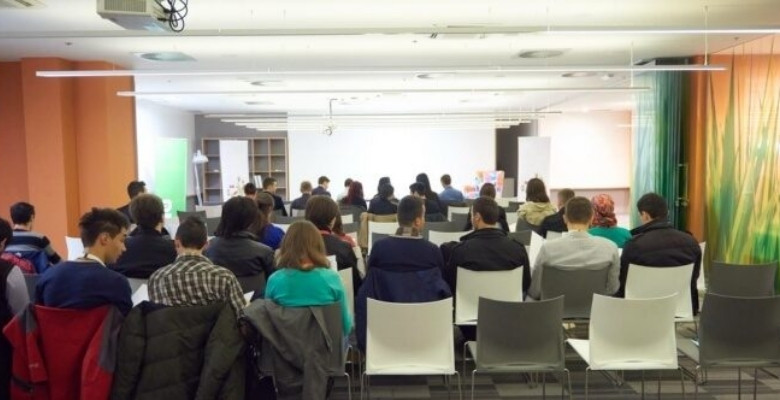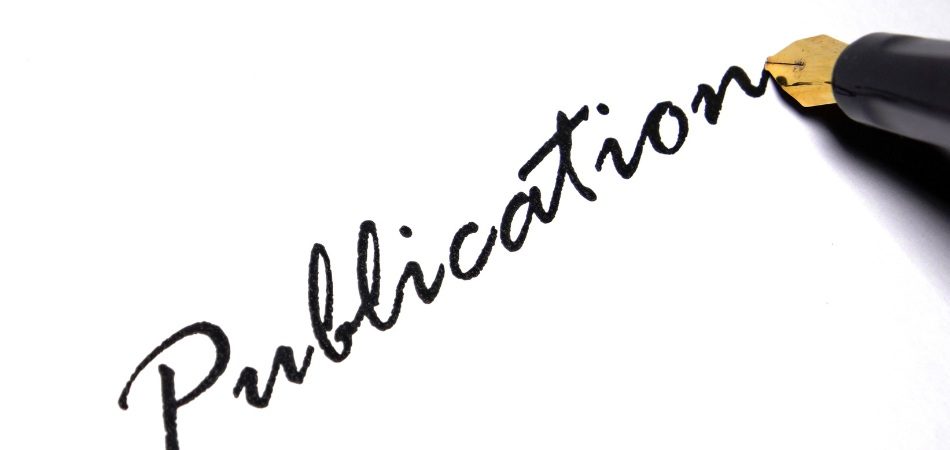Conferences are places where researchers share their work, meet peers, and learn from each other. They allow new ideas to be presented in early form before reaching bigger audiences. Many readers may wonder about their true value and often think, Do conference proceedings count as publications?
Yes, conference proceedings do count as publications when they are peer-reviewed and archived. Their value depends on field norms, strong in computer science, weaker in medicine. Most institutions still rank journals higher. Properly labeling proceedings and knowing your department’s rules ensures they support your academic goals.
Are you curious about how proceedings are accepted in different institutions or disciplines? If yes, then continue reading, because this article explains everything you need to know and gives you the right details to understand this topic fully.
Do Conference Proceedings Count as Publications?
Conference proceedings can be seen as publications in many cases. Their value often depends on how the paper was reviewed and stored. Some fields accept them strongly, while others prefer journals instead. Rules of your department or workplace also play an important role.
Review Process
The strength of a proceedings paper depends on the type of review. If experts carefully check the work before it is accepted, then its value becomes stronger. Without review, it is often seen as a weak publication. Archiving also makes the paper more permanent and respected.
Discipline Rules
Conference papers are treated with high respect in some subjects. For example, computer science often values top conference papers very highly. On the other hand, areas like medicine or chemistry give much more importance to journals. The judgment really depends on the standards of each academic field.
Journal Preference
Many universities and organizations still see journals as more reliable. Journals are usually harder to get into, so they carry more weight. Conference proceedings are considered helpful but often seen as less permanent. Because of this, journals often rank higher than proceedings in most fields.
Department Rules
Different institutions have their own ways of counting publications. Some departments allow conference papers to be equal to journals. Others may only count journals when considering promotions or funding. Knowing your department rules is important before you decide on publication choices.
Proper Labeling
When listing conference papers, it is good to be very clear. A paper from proceedings should be marked as “proceedings paper.” This makes sure others understand its exact nature and value. Without this clarity, some people may think you are hiding information.
Career Value
Employers or funding groups often give more weight to journal work. Conference papers may still help show your activity and research growth. They are useful to prove that you are engaged with the field. Attending events such as arts and educations conferences in Canada, the USA, or any other country also supports building stronger academic recognition.
Field Changes
In some fast fields, conferences are almost as strong as journals. Computer science is the clearest example where big conferences are highly respected. In these cases, researchers often publish in both journals and conferences. This shows how the value of proceedings changes across different subjects.
Conference proceedings can count as publications when the review is solid. Their true value depends on the subject area and the institution’s rules. Journals still remain stronger in most parts of academic research. Clear labeling and awareness of policies can guide smart publishing choices.
How Can I Check if Conference Proceedings Count as Publications at My Institution?
Simple ways exist to confirm if conference proceedings count before you list them. Most institutions have clear rules or at least examples that you can check. Looking at past cases and official documents makes the process easier. Asking the right people can also save you from mistakes.
Department Rules
The first step is to look for any official guidelines. Many departments publish handbooks or online documents that clearly state what counts. If conference proceedings are accepted, they will usually be mentioned there. Always check your department’s website or policy documents for written rules.
Past Listings
Another easy way is to check senior colleagues’ CVs. If you see proceedings listed alongside journals, then it is likely accepted. Pay attention to how they are labeled and placed in the publication list. This gives you real examples of how others have handled them.
Advisor Approval
Talking to your academic advisor or supervisor can give clear direction. Advisors often know what has been counted in the past. Their advice helps avoid confusion in gray areas where policies are not clear. A short discussion can save you from future corrections or issues.
Tenure Criteria
Promotion or tenure documents often explain what outputs are valid. These rules are usually strict and followed closely during evaluations. If proceedings are not mentioned in these lists, they may not count. Reading these documents early gives you time to adjust your plans.
Funder Terms
If your work is supported by grants, funders may set rules. Some grant agencies accept proceedings as valid outputs, while others do not. Checking their terms avoids problems when you submit final reports. Following their standards ensures your work is counted without rejection.
Evidence Kept
Always keep proof that your paper was officially accepted. Saving emails, acceptance letters, or links to the proceedings record is important. This evidence makes your case stronger if someone questions it later. Having documents ready avoids delays and helps prove the publication’s validity.
Checking if proceedings count as publications saves time and effort. Official rules, past records, and advisor advice all give clear guidance. Funders and promotion documents can also decide what truly matters. Keeping evidence ensures your work is recognized without unnecessary arguments later.
How Do Conferences Add Value Beyond Just Publications?
Make entries clear and honest so others can easily understand your contributions. Conferences are more than just a way to publish papers. They also show activity, connections, and the depth of work you are doing. To make the most of them, record your outputs properly and consistently.

Separate Sections
It is best to split different kinds of academic work into clear groups. Journals, refereed proceedings, and short abstracts should all appear in separate categories. This makes it easy for readers to see the difference in value. Clear sections also prevent confusion about what each entry really represents.
Proceedings Label
Whenever a paper appears in conference proceedings, it should be marked clearly. The label “Proceedings paper” tells others that it was part of a specific event. Without this note, readers may mistake it for a full journal article. Honest labeling builds trust and avoids misunderstanding in publication records.
Full Citation
A proper entry needs more than just the paper title and author names. Include the conference venue, year, page numbers, and DOI when available. This makes the paper easy to locate and verify by others. A full citation also shows professionalism and respect for academic record-keeping.
One Style
Consistency is important when listing conference papers and other works. Using a single citation style makes your CV or list look professional. Readers will not be distracted by changing formats or missing details. A simple, uniform style across all entries shows careful attention to detail.
Review Noted
Many people want to know whether a conference paper was reviewed. If the paper went through peer review, it is good to state it. A simple note such as “peer reviewed” helps avoid doubt about the quality. This information strengthens the value of the publication in official reviews.
Version Stated
Sometimes, a conference paper later grows into a longer journal article. In that case, make sure to note that it is an “extended version.” This helps people understand the link between the two publications. Apart from proceedings, the benefits of presenting papers in conferences include networking with peers, getting real-time feedback, and improving research visibility.
Conference papers add value when they are recorded in a clear way. Honest labeling and proper details make them easier for others to trust. Proceedings, reviews, and extended versions all need careful notes in records. A consistent style ensures that your contributions look strong and professional.
How Should I List Conference Proceedings as Publications on My CV?
Building a CV requires showcasing your work clearly, and publications are a key part of that. Conference proceedings can be included, but they must be listed carefully. Clear details help others quickly understand the value and type of your contributions.
- Separate Section: Create a different section for conference proceedings instead of mixing them with journal papers, because this keeps everything organized and makes your CV look neat.
- Clear Labeling: Mark them as “Proceedings paper” so that readers understand these are conference-based works, not journal articles, avoiding possible confusion about publication type.
- Full Details: Always include the title, conference name, year, page numbers, and DOI if available, because this helps others verify and access your work.
- Consistent Style: Use one citation style for all entries so that your CV looks professional, consistent, and easy to follow without distracting format changes.
- Review Status: Mention if the paper was peer reviewed, since this adds weight to your entry and helps others know its academic value.
- Link Expanded Versions: If the work later became a longer journal article, mention “extended version” to show the connection and avoid duplication misunderstandings.
- Evidence Ready: Keep acceptance letters, program details, or links handy, since they support the authenticity of your entries if questions ever come up.
Listing conference proceedings properly makes your CV more reliable and professional. Clear sections, correct labels, and consistent details create trust. Reviewing notes and evidence also helps. Organized entries ensure your work is represented in the strongest possible way.
Here’s a PDF CV sample you can check out.
Do Conference Abstracts and Posters Count as Publications?
How to report them without confusion is important because abstracts and posters often appear in academic events. They show participation and communication, but they are not considered the same as full publications. Listing them correctly avoids confusion and keeps your CV clear.
Not Equivalent
Abstracts and posters are useful but do not have the same weight as journal papers or proceedings. They are usually shorter, less detailed, and not peer-reviewed at the same level. When it comes to abstracts and posters, understanding conference papers is important, since only full papers are usually treated as formal publications.
Presentations Section
Instead of placing them under publications, list them in a section called “Talks,” “Presentations,” or “Posters.” This makes it easy for readers to know their nature. Keeping them separate also shows honesty in how you report academic contributions.
Short Citation
Include basic details such as the title, event name, city, and date while recording them. This gives enough information for others to understand the context without expecting a full article. Keeping citations short and clear helps maintain balance on your CV.
Link Shared
If the event allows it, you can add a link to your poster or slides. Sharing material online makes your work visible to a wider audience. This also allows others to check the original content directly instead of only reading the title.
Accurate Labels
Always describe the format clearly, such as “Conference Abstract” or “Poster Presentation.” This avoids confusion and shows the true level of the work. Using accurate labels helps maintain transparency and builds trust with those who review your CV.
Upgrade Path
Sometimes an abstract or poster later grows into a full article or proceedings paper. When that happens, you can update your CV and mention the extended version. This shows academic progress and highlights how initial ideas developed into deeper research.
Conference abstracts and posters are valuable, but they are not publications. Listing them clearly prevents confusion about your academic record. Accurate labels and sections keep your CV professional. Over time, these works may lead to full papers.
Can I Submit a Journal Article After a Conference Proceedings Publication?
Deciding how and when to expand your work matters if you have already published in conference proceedings. Many researchers later aim for journal publication, but they need to handle it carefully. With the right steps, a proceedings paper can successfully grow into a stronger journal article.
Often Allowed
Many journals allow authors to publish an expanded version of a proceedings paper. They understand that conferences are often the first steps in sharing new research. Journals mainly want to see fresh contributions, not just a repeat of the earlier work.
Added Results
To make the journal version stronger, authors usually add more depth. This may include new results, updated experiments, deeper analysis, or broader discussions. The key is showing clear growth beyond the proceedings version, so it feels like a new contribution.
Prior Cited
When submitting, it is important to be open about earlier versions. The conference proceedings should be cited clearly in the journal article. Being transparent avoids misunderstandings and shows respect for academic integrity and professional publishing practices.
Rights Checked
Before reusing content, check the copyright terms of the conference proceedings. Some publishers allow reuse freely, while others have strict conditions. Confirming these details early prevents issues with duplicate publication and keeps your submission safe from rejection.
Changes Explained
In the cover letter, explain how the journal article differs from the conference version. Editors appreciate clarity about what is new. This small step helps reviewers see the added value without confusion or suspicion of self-plagiarism.
Fresh Writing
Text should not be copied word for word from the proceedings. Rewriting and expanding the article shows originality and professional effort. Even when presenting similar ideas, new writing highlights the progress and avoids problems with overlapping content.
Submitting a journal article after a proceedings paper is often possible. Journals usually require added value and clear differences in content. Proper citation and copyright checks help avoid ethical problems. Fresh writing and open explanation make the process smoother.
What Pitfalls Can Weaken Conference Proceedings as Publications?
Common problems that reduce value can harm how proceedings are seen. Not every conference paper carries the same weight, and certain issues can make them weaker. Knowing what to avoid helps you keep your academic work strong and credible.
- Predatory Events: Attending low-quality or deceptive conferences can hurt your record, since their proceedings are often not respected, lack peer review, and may not be trusted.
- Poor Editing: Weak editing with typos, missing details, or broken formatting reduces the professional value of your paper and makes readers question its quality.
- Broken Records: When conference websites go offline or files disappear, the publication becomes hard to access, which reduces its visibility and long-term usefulness.
- Duplicate Text: Submitting a journal paper with content too close to your conference version can create overlap issues and may look like self-plagiarism.
- Off-topic Scope: Publishing work that does not fit the main theme of the conference can make your research seem misplaced and less meaningful.
- Missed Archiving: If the conference does not archive proceedings in stable platforms, the work may vanish over time, losing credibility and permanent recognition.
- Weak Review: Papers accepted with little or no peer review often lack the rigor needed, which lowers trust and makes them less valuable as publications.
Conference proceedings can be strong if handled with care and honesty. Problems like weak review, poor editing, or lost records reduce their value. Clear fit, proper archiving, and quality checks protect their usefulness. Avoiding pitfalls keeps your research respected and credible.
FAQs About Do Conference Proceedings Count as Publications?
Many people get confused about whether conference proceedings should be counted as official publications. The rules are not always the same in every subject or institution. Below are some of the most common questions with clear answers to guide you, especially if you’re asking about are proceedings considered publications in academic or professional settings.
Are Conference Proceedings Recognized Internationally?
Yes, many conference proceedings are recognized worldwide, but the level of recognition depends on the field. For example, computer science often values them highly, while other fields focus more on journals. Recognition also depends on indexing databases like Scopus or IEEE. International recognition improves when proceedings are archived in trusted platforms.
Do Proceedings Papers Appear in Citation Indexes?
Some conference proceedings are included in citation databases like Scopus or Web of Science. If they are indexed, they are easier for others to find and cite. However, not every conference has this status, which lowers visibility. Checking if your proceedings are indexed helps you understand their real reach.
Are Conference Proceedings Peer-Reviewed?
The review process depends on the conference itself. High-quality conferences usually have a strong peer review system before accepting papers. Others may only review lightly or not at all. Peer-reviewed proceedings carry more weight than non-reviewed ones because they reflect stricter academic checks.
Can Conference Proceedings Be Cited in Research Papers?
Yes, conference proceedings can be cited in journal papers or theses. They act as valid references, especially if they are peer-reviewed and archived. However, citing too many proceedings instead of journals may seem weaker. It is better to balance both in your references.
Do Proceedings Count Toward Research Impact?
Proceedings may contribute to your research impact, but not as strongly as journals. They show activity and early sharing of ideas. Citations from proceedings still add value, but usually in smaller numbers. Stronger impact comes when proceedings lead to full journal publications later.
Are Proceedings Accepted by Employers?
Employers may count proceedings as proof of research activity. They show that you are engaged and active in your field. However, employers usually value journal publications more for career growth. Proceedings still help to demonstrate participation and consistent academic effort.
Can Proceedings Papers Lead to Collaborations?
Yes, presenting at conferences and publishing proceedings can open doors to collaborations. Researchers from different places may notice your work and connect with you. This often leads to joint projects, networking, or even future journal papers. Proceedings act as an introduction to your research.
Do Funding Agencies Accept Proceedings?
Some funding bodies accept proceedings as valid research outputs, but this varies. Many agencies prefer journals for progress reports or grant applications. Still, proceedings may show early results and ongoing activity. Always check the rules of your funding agency before relying on them.
Are Proceedings Useful for Students?
Proceedings are helpful for students who want to share research early. They allow students to gain feedback, improve writing, and build confidence. Even if the publication is not as strong as a journal, it proves active participation. This experience often leads to stronger future publications.
Can Proceedings Disappear Over Time?
Yes, some proceedings are not archived properly and may disappear from websites. This makes them hard to access later, reducing their value. Well-organized conferences usually archive their papers in digital libraries. Choosing conferences with stable archiving ensures your work stays visible for years.
Conclusion
Conference papers can add value, but journals often remain the gold standard. Rules, peer review, and archiving all decide their real worth. By weighing these factors, you can clearly answer the question, do conference proceedings count as publications?
Before listing proceedings, always label them correctly, check your institution’s policies, and keep evidence ready. Avoid weak conferences and focus on quality venues. With careful choices, your work will be respected, and your career will grow. Best wishes for your future publications.








